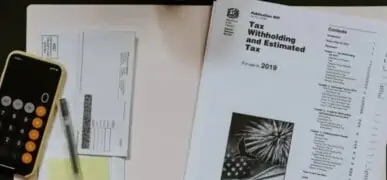Table of contents
- 10 Ways to Travel Smarter as a Contractor
- 1. Cover the basics
- 2. Figure out accommodation at home and abroad
- 3. Arrange transportation beforehand
- 4. Figure out your financial means
- 5. Make arrangements for spouses and dependents
- 6. Travel with cash
- 7. Stay charged
- 8. Buy a local SIM card or prepaid mobile
- 9. Take advantage of social media
- 10. Allow for delays and adjustment periods
- Related topics about travelling as a contractor
10 Ways to Travel Smarter as a Contractor
Setting up health insurance, finding and moving into a decent apartment, registering for tax or social security, sussing out a decent ISP, applying for a driver’s license: you’re probably familiar with these little joys of life. Now imagine doing all of those, plus a lot more, simultaneously, from another country where you don’t know anyone – possibly even in another language.
When you’re contracting in a new country, making a smooth transition can seem like an impossibility. The good news is that you can break it all down into manageable tasks.
One of the best ways to do that is an organised plan of attack. We’ve compiled a list of ten considerations to get you started.
1. Cover the basics
Work out as much paperwork as you can, as early as possible. Nobody has ever said on their deathbed, “My one regret was preparing too much for my move overseas.”
Double-check that your passport is current, gather all relevant documents like tax statements or medical files and back up as much as you can on a flash drive that you keep in your carry-on. Sorting out admin is burdensome enough without trying to do it while in another country, or – worse – from inside an airport terminal.
2. Figure out accommodation at home and abroad
You’ve got two challenges: figuring out where you’ll stay overseas, and what to do with your current housing.
In your home country
Are you going to be away long enough to justify selling your home or exiting your lease? If your move is short enough, you might consider subletting or simply having a friend house-sit while you’re away.
In your new country
This one is a little more challenging because it’s difficult to make arrangements before you’re even in the country. The easiest route is to book a decent hotel in a nearby area. Keep details like the address or phone number in your wallet in case of emergencies (a lot of countries ask for specific accommodation details when you go through customs, as well).
If you’re content with your hotel, set up a home base for a few days. From there, you can check out neighbourhoods, ask co-workers for housing recommendations, and get a feel for your new location before committing to long-term accommodation.
Depending on the length of your stay, you might be better off with a serviced apartment. We tend to take for granted all the mundane necessities of living (furniture, dishes, lamps, rubbish bins, etc.), and gathering all of them in an unfamiliar location can be annoying.
3. Arrange transportation beforehand
After a tiring flight, long queues, miserable food, and no sleep, how does getting stuck in a labyrinthine airport sound? Even if you’re lucky enough to not be starting work the very next day, you’ll probably want a real bed and a hot shower ASAP, so research your exit plan well before you arrive.
Ideally, you can ask your client to collect you from the airport. If that’s a no-go, look into your options for car hire or cabs. There’s nothing worse than realising you don’t have the necessary docs for a rental, or finding out last minute that this particular country’s cab drivers have a penchant for ripping off new arrivals.
4. Figure out your financial means
Imagine you’re in a brand new country. You don’t know anyone, you don’t have a permanent place to stay, you’re trying to settle in – and you can’t access any of your major accounts or use your expected card. Work out all the fine details with your bank(s) before you leave or, better yet, figure out suitable traveller’s checks or cards.
The advantage of travel cards is that you can avoid the wrath of bank fees or terrible exchange rates. Compare your options on a site like mozo.com.au.
You need to consider how you’re getting paid, too. Do you need to set up a local or offshore account? Are you getting paid in an easily convertible currency? Consult your client before leaving to avoid any unpleasant surprises.
5. Make arrangements for spouses and dependents
If you’re bringing partners or family members, you need to consider issues like schooling and health insurance well in advance.
Likewise, if you’re taking your dog, cat, or pet tarantula with you, be aware of all immigration barriers. Be prepared for quarantine times or obligations like local registration or license applications and fees.
6. Travel with cash
There are about five thousand potential scenarios that can leave you needing cash when you’re flying internationally, and ATMs aren’t always handy. Pre-empt any sticky situations by carrying a $100 billon you or in your carry-on.
7. Stay charged
Buy at least two power adaptors for your new country and keep one in your carry-on. If your luggage gets lost or you need to charge a device in between flights, you’ll be prepared.
Also, consider a portable power supply. Not only will it keep your mobile or laptop going in worst-case scenarios (ever tried to find a power outlet in a busy airport?), it’ll give you options on extra-lengthy flights.
8. Buy a local SIM card or prepaid mobile
Don’t get hit with unexpected carrier fees or astronomical prices while you’re travelling. Plan to buy a prepaid SIM or mobile as soon as you get in the country. If you’re using a SIM card, you might need to unlock your phone beforehand.
9. Take advantage of social media
The internet is one of the best ways to connect with people in a new place – use it. Things like Facebook events and expat forums can help you stay current with work functions, networking opportunities, or simply meeting new people.
10. Allow for delays and adjustment periods
Some people hit all the green lights, but shrewd travellers don’t bank on winning that cosmic lottery; making plans based on lightning-fast processing or perfect timing is a fast track to aggravation. Allow some wiggle room for red tape, bureaucratic delays, or even just getting lost in a new city.
Certain countries have more red tape than others, so keep your destination in mind when you plan.





